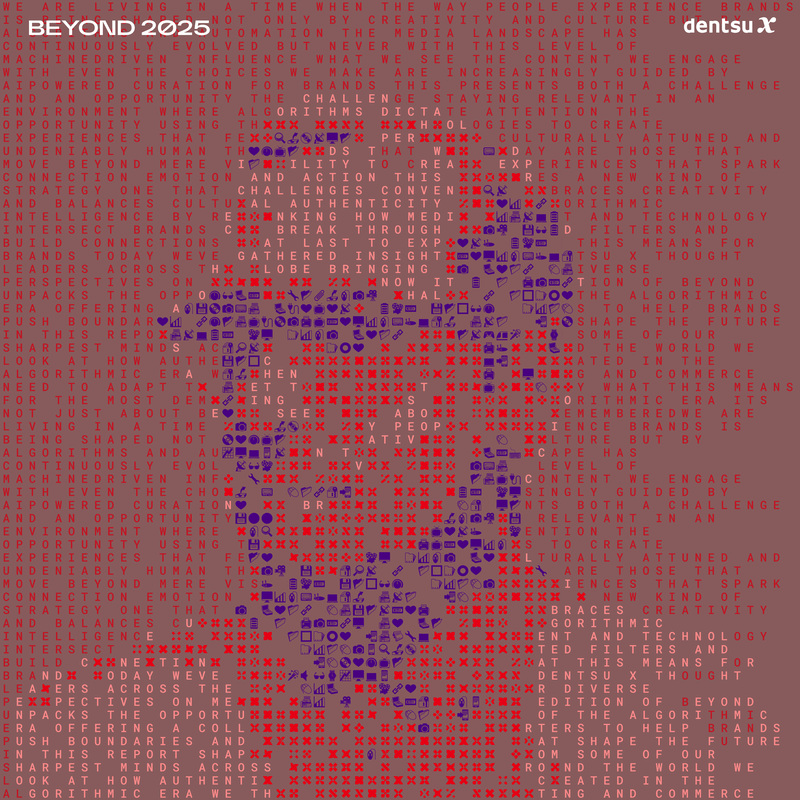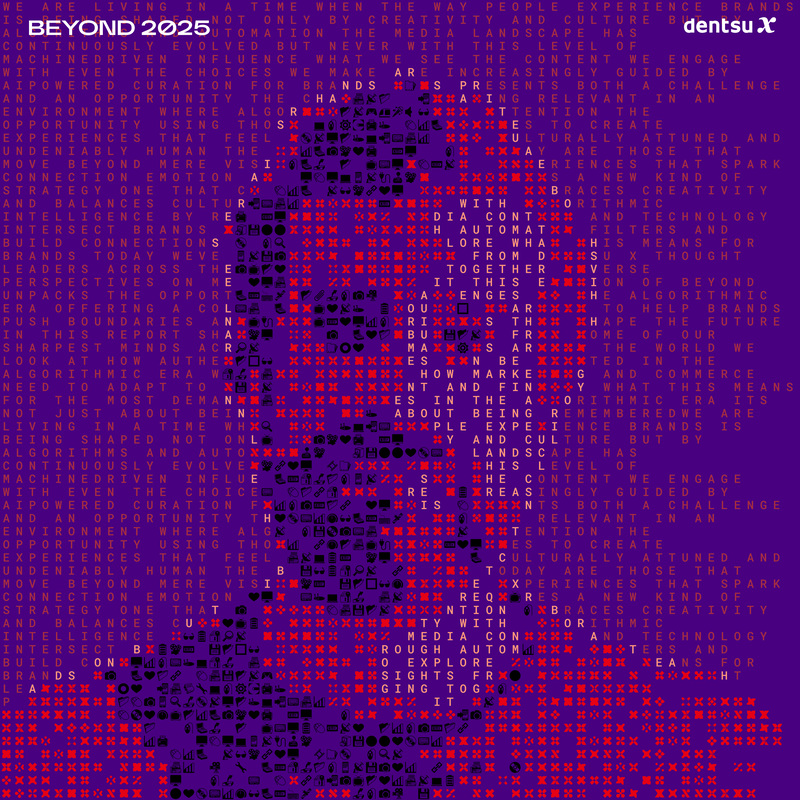This article is part of Beyond 2025: Winning in the Algorithmic Era, dentsu’s latest thought leadership series exploring what it takes for brands to thrive in a future shaped by automation, AI, and algorithmic decision-making. Each piece spotlights a key media or marketing shift and includes practical considerations for brands navigating this new landscape.

Brands that act as tastemakers, rather than content machines, will thrive in the Algorithmic Era.
The Why: The flattening of culture
Over the last years, the stellar growth of social media and streaming has democratized access to content. Spotify brought to listeners every song ever recorded (or, if you prefer, every song re-recorded by Taylor Swift). TikTok turned content creators into overnight sensations. Instagram made niche brands instantly discoverable and shoppable. After decades of top-down culture-making, the arbiters of taste would finally be shaped by the people, not the industry.
A free-for-all of infinite choice, infinite content, infinite voices. But eventually, that abundance became a burden. We’ve all felt it—that quiet frustration of spending 30 minutes scrolling through Netflix, only to end up watching Fleabag again. Over time, recommendation feeds stepped in to ease the fatigue. But instead of expanding our horizons, they started narrowing them.
Kyle Chayka, in Filterworld: How Algorithms Flattened Culture, argues that recommendation engines don’t foster discovery, they amplify what’s already popular. The safest, most engagement-friendly content is amplified, while everything else quietly disappears into the abyss.
This pattern happens across all cultural areas of interest:
Australia’s Triple J Hottest 100 was once a showcase of global and local musical talent, a reflection of diverse taste. This year, three artists accounted for 25% of the entire list: Charli XCX, Billie Eilish, and Gracie Abrams.
At one point last year, you couldn’t walk through London without seeing a pair of adidas Samba sneakers. Sambas were everywhere. Even politicians (yes, Rishi Sunak) got involved, and predictably, that was the tipping point for the fashion phenomenon status.
A limited series about a real-life internet scandal? A gripping HBO drama about rich people behaving badly? A Netflix thriller with a snappy title? Despite infinite TV shows on hand, people still end up watching the same stories in slightly different packaging.
BookTok may have revived reading culture, but it also flattened the aesthetics of literature: the rise of romantasy has made entire shelves indistinguishable one from another, taken over by a flood of Sarah J. Maas knockoffs embossed in gold foil.
The Brand Opportunity: The return of tastemaking
In this rising sea of cultural sameness, people are starting to look for new ways to engage with content, turning to human curators who provide actual taste and judgment.
We see it in Substack, where people would rather get recommendations from a trusted voice than from an algorithm designed to optimize engagement. We see it in Reddit, where deep-dive communities still act as the best recommendation engine for everything from skincare to services. We see it in Letterboxd, which has grown to more than 17 million registered users because people want to engage in film discussion, not just passively consume whatever is fed to them.
With infinite content, what people choose to consider, consume, or create matters more than ever. This signals a shift for brands: how can they adopt a tastemaker mindset to stand out in an algorithmic world?
While many brands have operated for years under the assumption that more is better to dominate the algorithmic feeds – more content, more ads, more reach – the smartest brands are now shifting their focus, understanding that intention matters more than volume in a world oversaturated with choice.
Ultimately, taste will be what makes content valuable to audiences, and what makes brands stand out rather than being averaged out in the Algorithmic Era.
To explore more trends and brand implications, download Beyond 2025: Winning in the Algorithmic Era.

